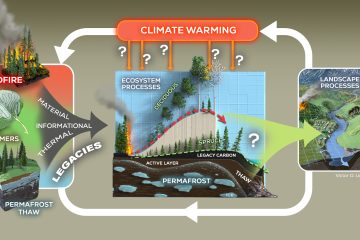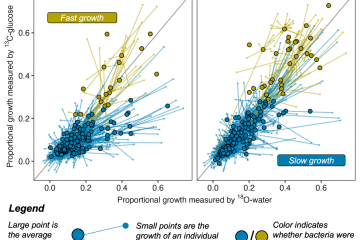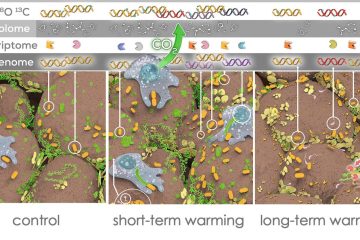Tundra soil carbon is vulnerable to rapid microbial decomposition under climate warming
Microbial decomposition of soil carbon in high-latitude tundra underlain with permafrost is one of the most important, but poorly understood, potential positive feedbacks of greenhouse gas emissions from terrestrial ecosystems into the atmosphere in a warmer world1, 2, 3, 4. Using integrated metagenomic technologies, we showed that the microbial functional community structure in the active layer of tundra soil was significantly altered after only 1.5 years of warming, a rapid response demonstrating the high sensitivity of this ecosystem to warming. The abundances of microbial functional genes involved in both aerobic and anaerobic carbon decomposition were also markedly increased by this short-term warming. Consistent with this, ecosystem respiration (Reco) increased up to 38%. In addition, warming enhanced genes involved in nutrient cycling, which very likely contributed to an observed increase (30%) in gross primary productivity (GPP). However, the GPP increase did not offset the extra Reco, resulting in significantly more net carbon loss in warmed plots compared with control plots. Altogether, our results demonstrate the vulnerability of active-layer soil carbon in this permafrost-based tundra ecosystem to climate warming and the importance of microbial communities in mediating such vulnerability.


